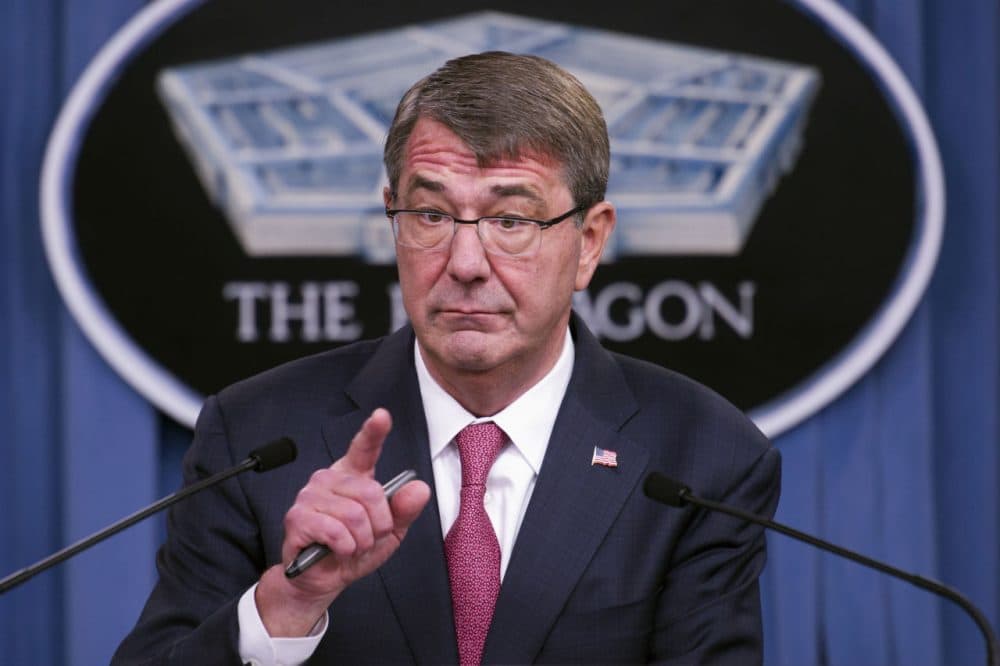Advertisement
Pentagon Says Women Can Serve In Combat
Resume
Defense Secretary Ash Carter announced Thursday that women can now serve in combat posts in the U.S. military.
"This means that as long as they qualify and meet the standards," said Carter. "Women will now be able to contribute to our mission in ways they couldn't before. They'll be allowed to drive tanks, fire mortars and lead infantry soldiers into combat. They'll be able to serve as Army Rangers and Green Berets, NAVY Seals, Marine Corps infantry, Air Force parajumpers and everything else that was previously only open to men."
The secretary's decision overturns a longstanding rule, and opens up the remaining 10 percent of military positions that barred women. He said the process of integrating women must begin in the next 30 days.
Guest
Rep. Niki Tsongas, Democratic congresswoman for the 3rd district of Massachusetts. She tweets@nikiinthehouse.
Jason Cain, 10-year veteran of the U.S. Army, M.P.A. student at Harvard Kennedy School. He tweets @JMFC.
More
WBUR: Pentagon Says Women Can Now Serve In Front-Line Ground Combat Positions
- "The formal process to open combat jobs to women began in January of 2013; in finishing that process, Carter acknowledged that in recent years, U.S. women have fought — and sometimes given their lives — in combat posts in Iraq and Afghanistan."
The Daily Beast: Women Don't Shy Away From Combat
- "Similarly, men who have served with women report being more open to integration. This is also important—those who have actually seen women troops serving alongside men know what women can do."
Ms. Magazine: Women in Combat? Let’s Reframe The Debate
- "A no-combat position would be politically impractical, of course, unwise, even, in the current geopolitical environment. But a strategical use of the issue, just as some union members used concerns about weight limits in the 1980s, could leverage more serious thinking about the militarization of our culture and economy. With a few months to go before Secretary Carter rules on the issues, the non-combat status of women can still be used to renew a national conversation about the costs of U.S. wars—human and otherwise—in the 21st century."
This segment aired on December 4, 2015.